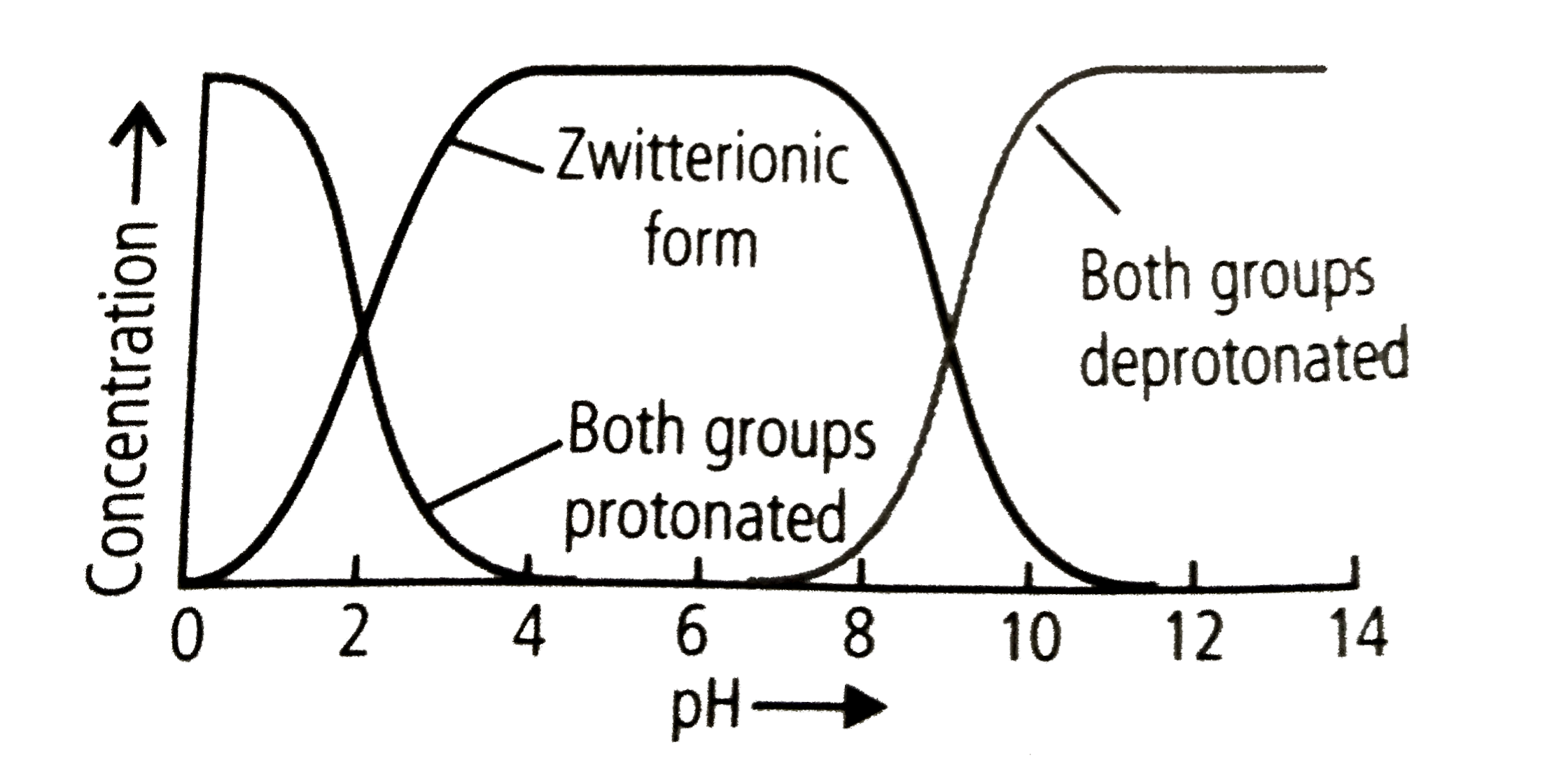Which is not true statement ?
(a)α carbon of α amino acid is asymmetric
(b)All proteins are found in L-form
(c)Human body can synthesis all proteins they need
(d)At pH=7 both amino and carboxylic groups exist in ionised form
α carbon of α amino acid is asymmetric
All proteins are found in L-form
Human body can synthesis all proteins they need
At pH=7 both amino and carboxylic groups exist in ionised form
The correct Answer is:B
All proteins are not found in L-form but they may be represent in D or L-form
Similar Questions
Which of the following statement are correct ?
1. α - amino acids present in protein are α - L amino acids
2. Amino acids have −NH2 as well as −COOH group
3. Number of amino groups and carboxyl groups are always same in all α - amino acids
4. Concentration of dipolar ion is maximum at isoeletric point
Select the correct answer from the codes given belowView SolutionWhich statement correctly the statement ?
Except for glycine, which is achiral, all the amino acids present in proteins....View Solution
Knowledge Check
- Question 1 - Select One
The number of amino acids found in proteins that a human body can synthesize is
A20B10C5D14 - Question 2 - Select One
Protein are nitrogeneous organic compound having very high molecular mass. They are polyamide formed from α-amino acid. The bond formed between two amino acid is called peptide bond ⎛⎜ ⎜⎝−C∣∣O−NH−⎞⎟ ⎟⎠. The product obtained by this peptide bond formation are called peptide and they may be divided as di, tri, tetra, penta peptide.
Consider following statements concerning protein.
1. All amino acids which are constituents of proteins are α-amino acid.
2. α-amino acids are all optically active and have L-configuration.
3. An especially favourable conformation for the peptide linkage in protein is the α-helix arrangement .
4. α-amino acids are connected by ester linkage.
Which of the following statement are correct?A1 and 3B1 and 2C2 and 3D2, 3 and 4 - Question 3 - Select One
Refer to the given graph showing state of ionisation of zwitterion.
Select the correct statements regarding zwitterion.
(i) Zwitterions can be formed from compunds that contain both acid groups and basic groups in their molecules.
(ii) A zwitterion can act either as proton donor or proton acceptor.
(iii) A monoamine monocarboxylic α-amino acid is a acid at high pH as both the groups (amino and carboxyl) lose a proton.
(iv) Amino acids in solution at neutral pH exist predominantly as dipolar ions, the amino group is protonated (−NH+3) and the carboxyl group is deprotonated (−COO−).
 A(iii) and (iv)B(i), (ii), (iii) and (iv)C(i) and (ii)D(i), (ii) and (iii)
A(iii) and (iv)B(i), (ii), (iii) and (iv)C(i) and (ii)D(i), (ii) and (iii)
Excess carbohydrates and proteins are stored in body as
(a) Amino acids
(b) Fats
(c) Monosaccharides
(d) StarchView SolutionRead the following statements ,(a). A péptide bond is formed between COOH group of 1st amino acid and NH, group of 2nd amino acid. Br (b)-Ribosome is the cellular factory responsible for synthesising proteins. Br (c) -Activation of amino acids accurs in the presence of ATP.Which of the given statements are correct wrl. translation?
View SolutionCarboxylic acids containing an amino group (−NH2) as a substituent are called amino acids. When this amino group substitution is at α position with respect to carboxylic group, the aminoacid is called α-amino acid. The aminoacids with two carboxylic acids are called acidic amino acids whereas aminoacids with two amino group are called basic amino acids Amino acids show amphoteric character. Ali chiral natural amino acids exist in L-form. :
Which of the following is not an α-amino acid?View SolutionCarboxylic acids containing an amino group (−NH2) as a substituent are called amino acids. When this amino group substitution is at α position with respect to carboxylic group, the aminoacid is called α-amino acid. The aminoacids with two carboxylic acids are called acidic amino acids whereas aminoacids with two amino group are called basic amino acids Amino acids show amphoteric character. Ali chiral natural amino acids exist in L-form. :
What would be the net charge on the given amino acid at pH=14?
 View Solution
View SolutionCarboxylic acids containing an amino group (−NH2) as a substituent are called amino acids. When this amino group substitution is at α position with respect to carboxylic group, the aminoacid is called α-amino acid. The aminoacids with two carboxylic acids are called acidic amino acids whereas aminoacids with two amino group are called basic amino acids Amino acids show amphoteric character. Ali chiral natural amino acids exist in L-form. :
Each of the following represent natural alanine (an amino acid) exceptView Solution
